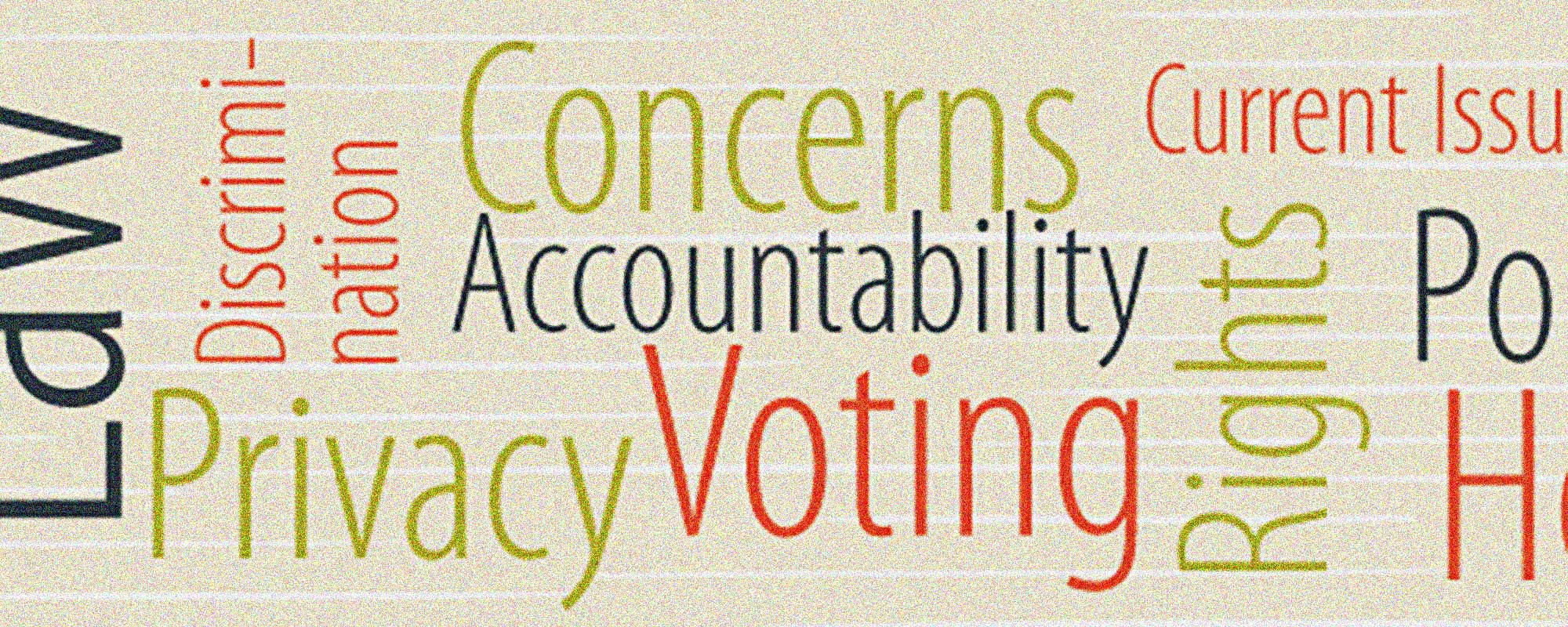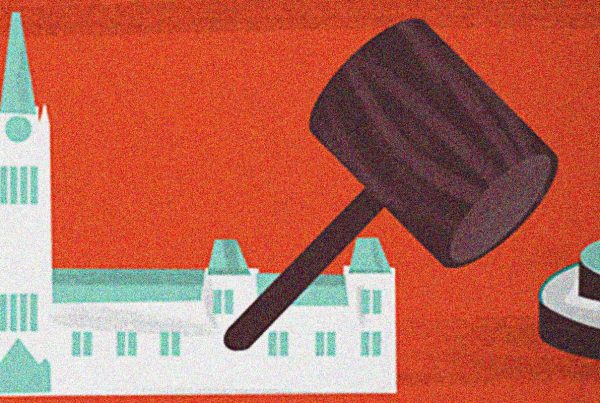TalkRights features content produced by CCLA volunteers and interviews with experts in their own words. Opinions expressed here do not necessarily represent the CCLA’s own policies or positions. For official publications, key reports, position papers, legal documentation, and up-to-date news about the CCLA’s work check out “THE LATEST” section of our website.
Canada’s national security interests have been enforced by the Canadian Security Intelligence Service (CSIS) since 1984. The agency and its activities have since remained shrouded in secrecy. This brief will attempt to dispel some of that secrecy by presenting a synopsis of the history of CSIS and an overview of its legislative form. In the process, the shortcomings and coming changes for the agency will also be discussed.
HISTORY
CSIS has its roots in the October Crisis of 1970. The kidnapping of James Cross and ensuing murder of Pierre Laporte by extremist members of the FLQ led Prime Minister Pierre Trudeau to affect the War Measures Act. Recognizing that the threat could have been averted, the RCMP created the Security Service branch to gather information on future threats. The branch did not maintain its purely informational role for long. It soon began to engage in various forms of subversion and disruption that went largely undetected until the mid-70’s[1].
The conduct of the Security Service grew increasingly egregious, famously culminating in the burning of a barn to disrupt a meeting between the FLQ and the Black Panthers in 1972[2]. When their misdeeds eventually came to light, a commission was established under the direction of Justice David MacDonald in 1977. The commission presented its findings in 1983. The report outlined a variety of illegal acts of subversion carried out by the RCMP, including spying on citizens and presenting forged communiques as evidence in court proceedings[3].
The MacDonald Commission attributed the organization’s misdeeds to the lack of a clear mandate and the reluctance of politicians to interfere with police work. Regardless, the commission refused to concede that a national security agency was unnecessary. The commission outlined that the goal of an agency should be to “secure democracy against both its internal and external enemies without destroying democracy in the process”[4]. It advocated for the creation of a civilian intelligence collection service with an entrenched legal mandate.
Later that year, a bill was tabled in response to these recommendations, creating the Canadian Security Intelligence Service. The bill initially received strong criticism concerning the broad scope of powers it conferred to the agency. Notably, the agency would have had powers to engage in “any other act or thing that is reasonably necessary”, effectively greenlighting it to operate outside of the law. Parliament eventually bowed to the criticism and referred the bill to a senate committee headed by former cabinet secretary Michael Pitfield. The committee produced a number of recommended amendments, maintaining the importance of confining CSIS to information collection and not law enforcement[5].
Parliament incorporated these amendments and the modified bill received Royal Assent in 1984 as the CSIS Act. While CSIS’s powers had been reined in through committee hearings, its mandate was still quite broad. Parliament narrowed its initial definition of “threats against any state allied or associated with Canada” in favour of one that captured more immediate harms. But, the definition still gave CSIS very broad authority to collect and retain information. The framework of the organization was relatively untouched until the amendments by the Harper government in 2015[6].
THE MODERN CSIS
Former Prime Minister Harper’s swansong, the Anti-Terrorism Act, 2015, pushes CSIS even further away from its original conception by the MacDonald commission. With an unchanged mandate, CSIS can now take direct action to disrupt threats. The only caveat to this positive right is that the agency may not cause harm, death, or injury. CSIS now has explicit authority to contravene the Charter of Rights and Freedoms and Canadian Law. These actions must be authorized by a federal court judge, but these proceedings are (ironically) subject to severe privacy limitation[7].
CSIS’ operations are subject to oversight by the Security Intelligence Review Committee (SIRC). The SIRC has to ability to access all information held by CSIS and measure its performance against legislatively mandated thresholds. Commentators have commended the role played by the SIRC but lament its lack of resources. The oversight of an organization with such a broad scope of power and jurisdiction is a herculean task, exacerbated by insufficient staffing and managerial missteps. The expanded authority granted to CSIS spreads a strained SIRC even thinner[8].
ON THE HORIZON
The Trudeau Government was motivated by the salient problems with the 2015 amendments to draft the largest overhaul to CSIS since its creation. At the time of writing, the bill has yet to be passed and is currently before the Senate, but it offers some welcome changes. First, it adds some important constraints to CSIS’ interventionist authority, including a prohibition on torture and detention. CSIS must now act consistently with the Charter and whatever immunity from the law is granted to it appears within the act[9].
These new powers will be reviewed by a new “super-SIRC”. The agency will now be able to access information from all departments, compel reviews within these departments, and hear complaints. The whole creates a review agency capable of identifying and intervening in CSIS’ operations. But, while the new legislation gives the review agency some teeth, its unclear whether it will control enough resources to adequately exercise this power[10].
CONCLUSION
In summary, the modern CSIS is getting closer to that envisioned by the MacDonald Commission. Protecting the national security of Canada is an unenviable task that requires lawmakers to constantly brush up against the maintenance of civil rights. It is possible, however, to have one without sacrificing the other. A national security agency only truly keeps the interests of the people it protects in mind if it is based on accountability, transparency, and the rule of law.
[1] Craig Forcese and Kent Roach, False Security: The Radicalization of Canadian Anti-Terrorism (Toronto: Irwin Law, 2015) at 25.
[2] R.C. MacLeod, “Royal Canadian Mounted Police (RCMP)” (February 7, 2006), online: The Canadian Encyclopedia <https://www.thecanadianencyclopedia.ca/en/article/royal-canadian-mounted-police>
[3] Ian Cameron, “Commission of Inquiry concerning Certain Activities of the Royal Canadian Mounted Police. Second Report: “Freedom and Security of the Law”” (1985) 48 Mod L V 201.
[4] Ibid at 203.
[5] Supra note 1 at 42
[6] Ibid at 45
[7] Craig Forcese and Kent Roach “Bill C-51 Backgrounder #2: The Canadian Security Intelligence Service’s Proposed Power to “Reduce” Security Threats through Conduct that May Violate the Law and Charter” (2015) [Unpublished, archived at SSRN (https://ssrn.com/abstract=2564272)].
[8] Ibid. See also Roy Atkey “CSIS Oversight is alive and well”, The Globe and Mail (February 3, 2015), https://www.theglobeandmail.com/opinion/csis-oversight-is-alive-and-well/article22750488/
[9] Craig Forcese, “Bill C-59 and the Judicialization of Intelligence Collection” (2018) Ottawa Faculty of Law Working Paper No. 2018-13.
[10] Ibid
About the Canadian Civil Liberties Association
The CCLA is an independent, non-profit organization with supporters from across the country. Founded in 1964, the CCLA is a national human rights organization committed to defending the rights, dignity, safety, and freedoms of all people in Canada.
For the Media
For further comments, please contact us at media@ccla.org.




